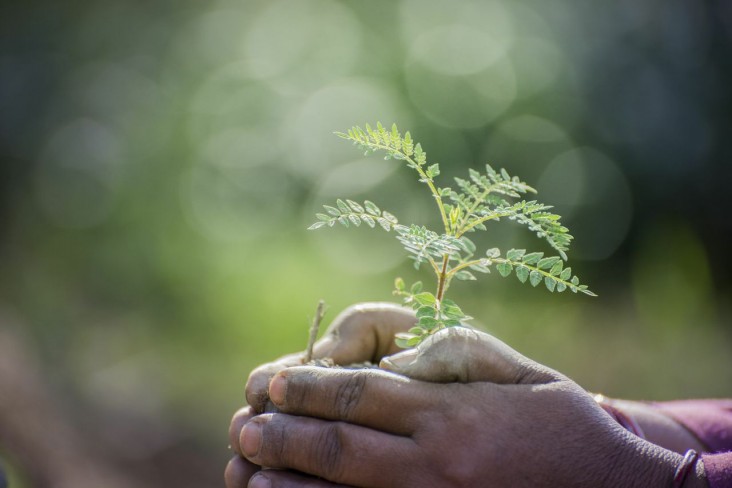India
- History
- Our Work
- Transforming Development Through Innovation & Partnership
- U.S.-India Triangular Cooperation
- Partnership for Energy Access and Security
- Partnership for Sustainable Forests in India
- Partnerships for Health
- Partnership for Education
- Partnership for Water Sanitation and Hygiene (WASH)
- Partnership for Food Security
- Partnership for Gender Equality
- Investing in Afghanistan
- Foreign Assistance Data
- Newsroom
- Newsletters and Fact Sheets
- Speeches
- Resources For Implementing Partners (RFIP)
- Careers
- Partnership Opportunities
- Success Stories
Speeches Shim

One in four people in India depend directly on forests for sustenance. However, more than 40 percent of India’s forests are degraded, and this impacts the flow of forest goods and services that are critical for inclusive economic growth. Despite the importance of these ecosystems, India's forests are still managed primarily for timber. USAID, in partnership with India’s Ministry of Environment, Forest and Climate Change and civil society organizations, is improving the management of forests and other landscapes to strengthen their ecological health and, improve the livelihoods of forest-dependent populations.
USAID/INDIA SUSTAINABLE FORESTS PROGRAMS
FOREST-PLUS 2.0 (FOREST FOR WATER AND PROSPERITY): Launched in December 2018, this program will improve the management of targeted forest landscapes in three states in India to enhance ecosystem services and increase economic opportunities, building on the success of Forest-PLUS 1.0 (2012–2017):
- Developing Tools for Managing Forests for Multiple Services: Forest-PLUS 2.0 will help respond to increasing recognition of the need to manage forested watersheds to enhance water flow and quality, and improve the livelihood opportunities and resilience of forest-dependent communities. The project will develop forestry management tools to enhance the flow of ecosystem services (water, in particular) and also develop model forest management plans based on an established ecosystem approach.
- Market-Based Instruments for Leveraging Finance: The program will develop tools to better monitor and value ecosystem services, and will also demonstrate market-based mechanisms for efficient delivery of these services. For example, a municipality or industry would make payments to upstream forest communities for using water flowing down from the forests because of improved forest management.
- Unlocking Economic Opportunities with Conservation: USAID will focus on modeling and setting up conservation enterprises to provide viable economic opportunities to forest-dependent people (rather than subsistence-scale livelihoods) and will leverage considerable investment by the private sector.
UNLOCKING ECONOMIC OPPORTUNITIES WITH CREDIT: Public spending alone is not adequate to stimulate improved practices and entrepreneurship in forestry and land-use sectors. However, private financial institutions often find the sectors too risky to offer credit. To address this, USAID signed a 50% loan portfolio guarantee agreement with financial companies to promote the flow of institutional credit for natural resource management. This will make up to $15 million in local financing available to small and medium private enterprises, cooperatives, producer companies, and microfinance institutions.
TIGER MATTERS: USAID’s Tiger Matters project with the Wildlife Conservation Trust (WCT) shows how a focused project can have wide impacts in rural development. For example, WCT identified the corridors tigers use to move between tiger reserve areas in the central India, and this has enabled the Government of India to establish new tiger conservation areas and select villages for rural development programs. Tiger Matters, in partnership with the Global Tiger Forum, also builds capacity in the tiger range countries in Asia and supports transboundary efforts to stop illegal wildlife trade and trafficking.
Achievements
- Ecosystem Health: Fuelwood extraction is the biggest driver of forest degradation in India. USAID developed an innovative decision support tool for evidence-based fuelwood management called iFoReST that can predict a range of scenarios of fuelwood use and predict sustainability and forest regeneration rates. Over the past 4 years, USAID has helped target households reduce fuelwood use by almost 50 percent and improve management of about 1 million hectares of forests.
- Forest Monitoring: USAID has supported the Government of India's efforts to develop a robust forest carbon monitoring system so that it can participate in the global forest carbon market. USAID developed innovative techniques to improve forest management and monitoring, reporting, and verifying carbon inventories, including mForest, a mobile phone app for forest inventory data.
- Forest Carbon Projects: USAID has four successful climate mitigation projects that not only improve forests but also can make carbon payments to communities involved in forest conservation. This has enabled the Government of India to develop future forest carbon projects at various scales.
- Livelihoods: USAID works with poor and marginalized forest communities in some of the remotest regions of India. In the Koraput district of Odisha, one of the lowest ranking districts of India on the UN's Human Development Index, community members learned new skills for the sustainable harvest and processing of non-timber forest products. Then they invested in five women-led producer companies, boosting incomes for 4,000 families by 40 percent.
- Innovative Private-sector Engagement: USAID has brought together local communities, government agencies, civil society groups, and the private sector for afforestation activities. This model enables the private sector to provide timely and effective inputs for forest management. Because India’s current forest policy framework does not include roles for private sector in all aspects of forest management, this partnership model will enable the private sector to scale-up its vital engagement in forest management within the current policy constraints.


Comment
Make a general inquiry or suggest an improvement.